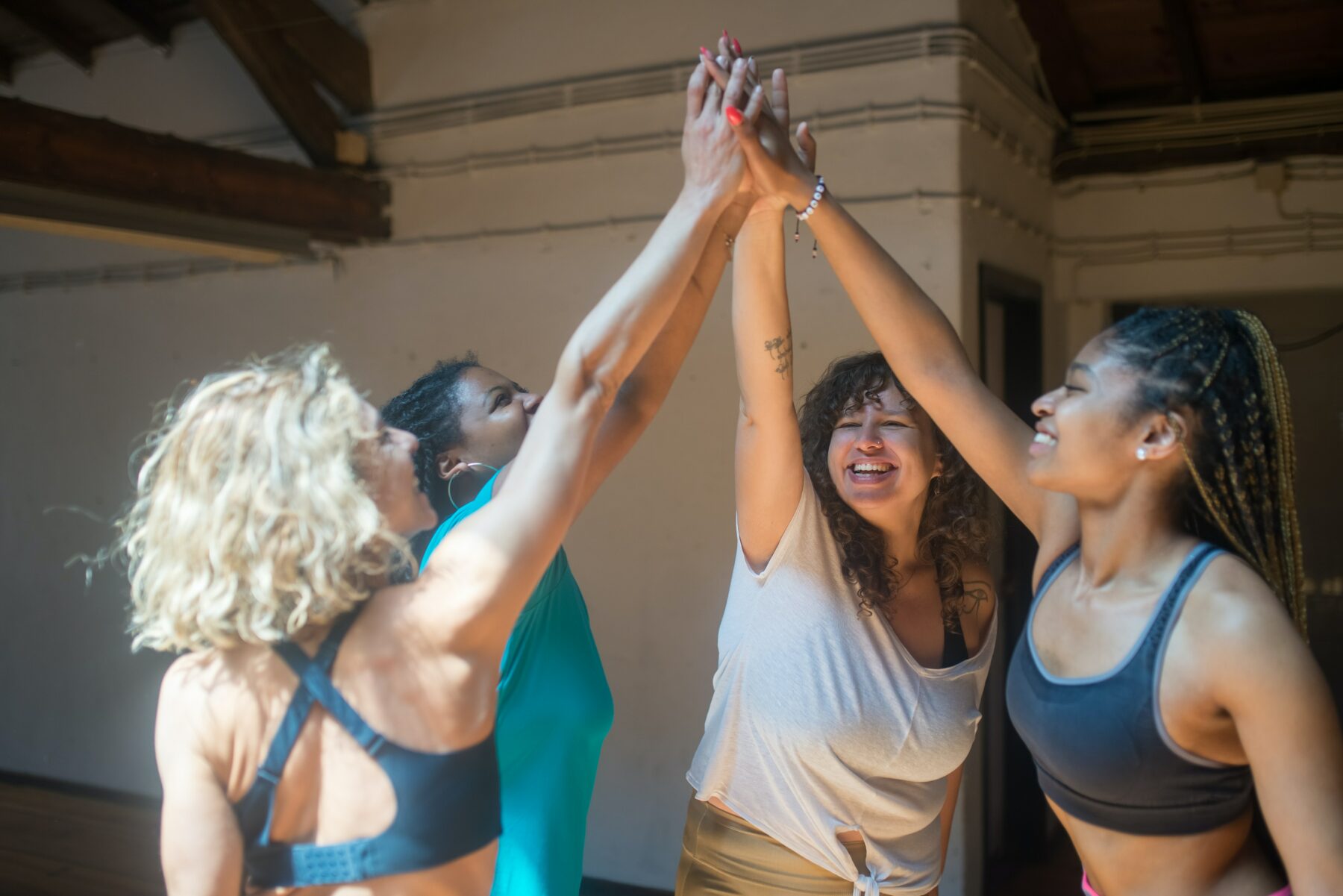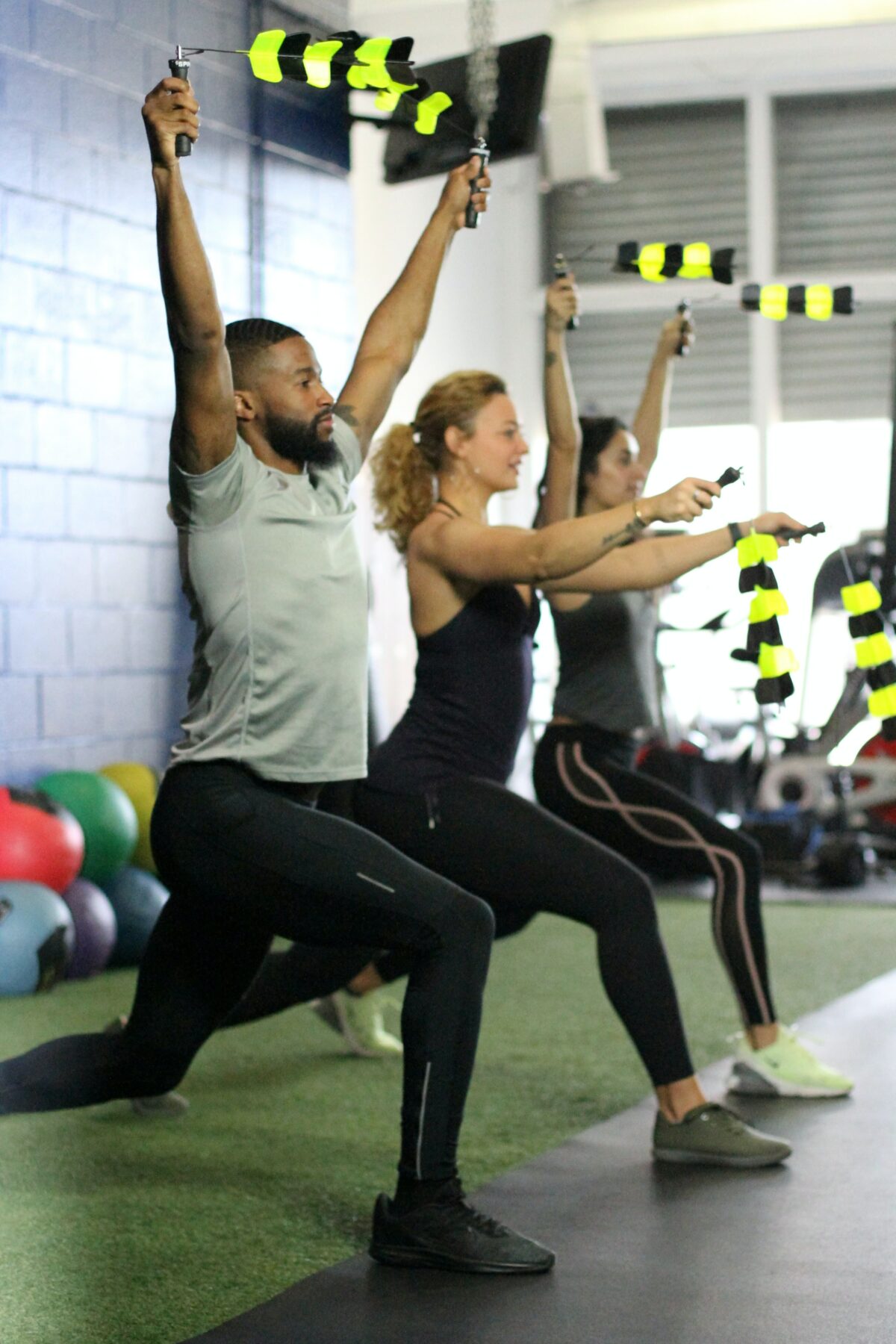Small-Group Training Could be the Secret to Your Fitness Success

Humans are social creatures, and it doesn’t end when it comes to fitness.
Working with a personal trainer in a small group of fellow exercisers has continually grown to be a popular way to stay active. In addition to sharing the cost of an exercise session — making it a more affordable option compared to one-on-one training — exercising with others has numerous benefits. Powerful incentives include social connections and camaraderie with your peers and the accountability of showing up alongside others in your group.
When a group session is led by an impactful instructor, everyone involved feels like they belong and have something important to contribute to the group. All of these are important qualities for stoking motivation for any challenging endeavor, including exercise.
Why Should You Workout With Others?
According to research, people feel more motivated to continue exercising when they (1) have the autonomy to choose what types of activities they perform during a workout, (2) feel as though they’re accomplishing tasks and (3)n feel connected to others. Additionally, when a person believes they possess the skills to handle a specific challenge (a concept known as self-efficacy), they’re more likely to persevere when the going gets tough.

In small-group personal training (where one trainer works with up to five clients), a masterful trainer can create a climate that promotes all of these elements. For example, one study found that participants in a small-group training program were more internally motivated and experienced higher levels of self-efficacy and psychological well-being; they were even more energetic! This is great news for those of us who enjoy the company of others when working out.
Ways to Boost Motivation by Working Out with Others
- Seek a qualified exercise professional who has experience training small groups. Small-group training programs are delivered just about anywhere, including large fitness centers, small boutique studios and even outdoors. Regardless of the setting, you’ll want to be sure that you’re working with a trainer who holds a professional certification from an accredited certifying agency so you receive safe and effective instruction.
- Work out with people who have similar abilities and fitness goals. When you exercise with peers who share the same characteristics, such as age, gender, fitness level and performance goals, you’re likely to feel more confident that you can successfully complete the program. Confidence leads to increased self-efficacy and ultimately higher-quality motivation.
- Find an environment in which you feel supported. In exercise settings, trainers have an opportunity to establish an overall climate wherein participants feel a sense of belonging and appreciation, both from the trainer and other participants. When trainers focus on their client’s self-improvement, encourage cooperation among participants, strive to make each individual feel like they’re an important part of the group, view mistakes as a natural part of learning, and treat everyone with kindness and respect, participants enjoy more psychological well-being, experience positive mood changes and are more committed to exercising in general. These are the ingredients that could make the difference between dropping out when life gets hectic or sticking to your routine.
It may take a little work to find the perfect fit when seeking out a small-group training program to join, but it’s well worth the effort. An alternative option is to gather a group of people you already know who have similar fitness goals and activity preferences and together seek out a trainer to work with you. Ultimately, exercising with a small group of supportive people may be just the social context that keeps you consistently showing up and working toward your goals.
About the Author
Sabrena Jo, M.S. has been actively involved in the fitness industry since 1987. As an ACE-certified group fitness instructor, personal trainer and health coach, she has taught group exercise and owned her own personal training and health coaching businesses. Jo is a former full-time faculty member in the Kinesiology and Physical Education Department at California State University, Long Beach. She has a bachelor’s degree in exercise science as well as a master’s degree in physical education/biomechanics from the University of Kansas and is currently pursuing her Ph.D. in exercise psychology. Jo is a relentless pursuer of finding ways to help people start and stick with physical activity.






